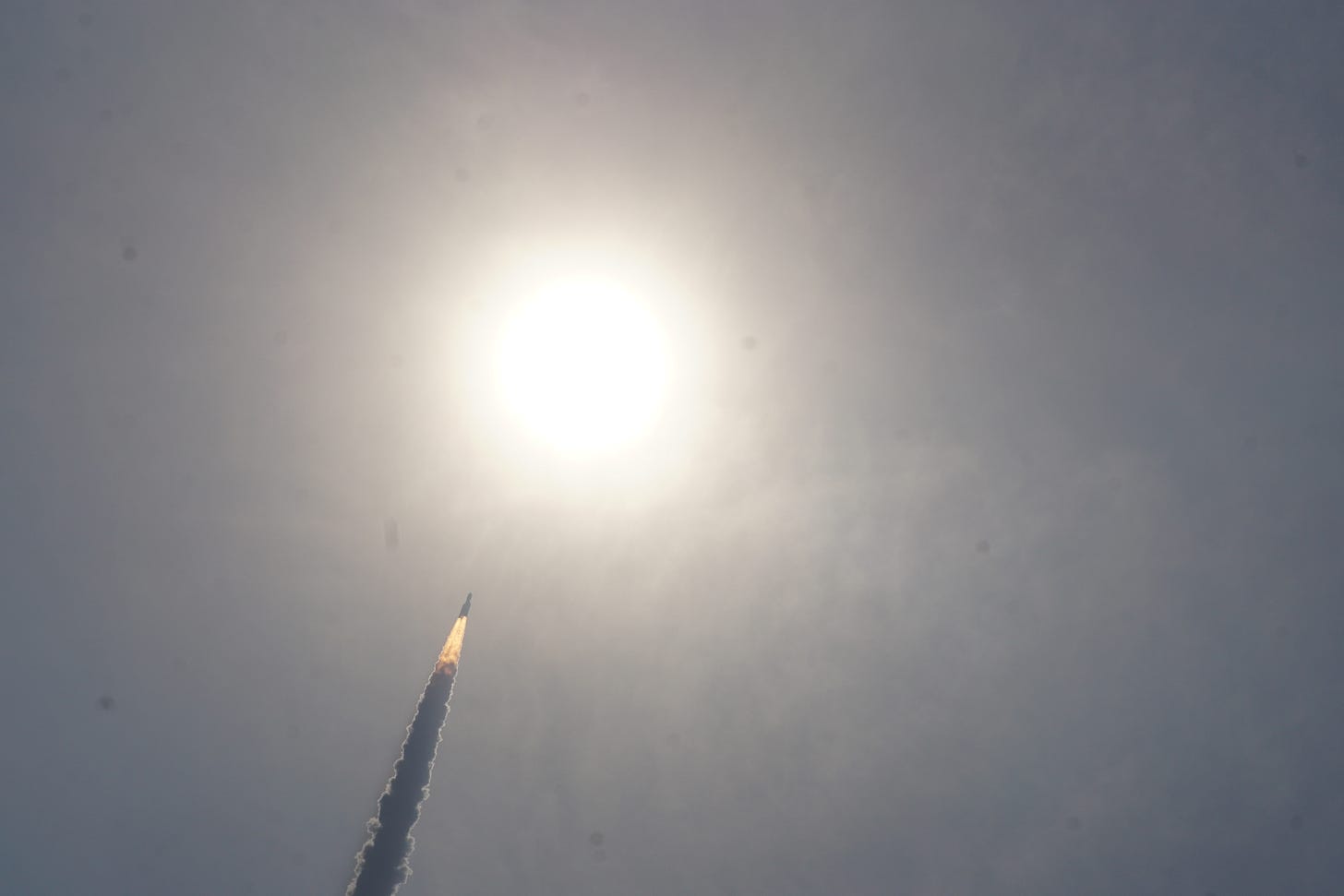Announcing The OneWeb Book
Its time to tell the story of the first completed internet megaconstellation
Hello to readers new and old,
This post will be a bit different, as it’s the first I’m sharing publicly on the internet instead of just by email. I couldn’t think of a better day than May 20th, the one-year anniversary of OneWeb’s last satellite launch, to announce that a book is in the works to chronicle the company’s story.
I’m excited to also share that my book has an agent! Sanford J. Greenburger Associates, a highly respected literary agency, is pitching the book to prospective publishers. After quietly researching OneWeb for the past year, it feels a bit surreal to see this project coming to life.
The plan now is for a publisher to take interest in the book and help bring it to fruition. For nonfiction, this process starts with a proposal — essentially a long book report outlining details like what you plan to write about, who the target audience is, and a sample chapter. My proposal was 39 pages (double spaced) covering everything a publisher would want to know about this book.
While I’ve written thousands of articles, this is my first ever book, so the process going forward is new to me. This blog will detail my experience going from book proposal to manuscript to published product, but to start, I’ll address the top five questions I’ve been asked during the research phase of the OneWeb book.
FAQ:
Why are you doing this? After reflecting on the seven years I spent as a reporter (shout outs to Via Satellite and SpaceNews), there was one story I felt like I hadn’t fully explored. OneWeb was the first modern megaconstellation, and after forming in 2012, it quickly made waves across all aspects of the space industry. Investors, having finally gotten over their losses from 1990s megaconstellation business failures like Teledesic, were ready to try again. Engineers and policy makers began paying attention to what low Earth orbit (LEO) internet satellites could do. And over OneWeb’s 11-year history, the idea of LEO megaconstellations spread out around the world (Amazon’s Kuiper, SpaceX’s Starlink, Telesat Lightspeed, and others), redefining humanity’s activity in space. As the frontrunner, I wanted to examine why OneWeb had such a big impact on the industry, and what it was like to pull together one of the world’s largest ever satellite networks.
What is the angle? The purpose of this book is to provide a historical account of OneWeb’s journey, mainly through the eyes of the people who worked at the company and its investors and partners. This is not a hit piece on OneWeb. And while the company’s rivalry with SpaceX’s Starlink does play a part in the story (especially in 2014), it is not the core focus of the book. This book, at its core, will be an objective telling of the first completed broadband megaconstellation. It will dig into the company’s feats, like building 650+ low-cost satellites, raising $6 billion from an unlikely cast of investors, and the herculean effort it took to survive getting robbed by Russia during the invasion of Ukraine. It will also examine the pitfalls that led to challenges like the Chapter 11 bankruptcy in 2020, the dearth of user terminals at service launch, and manufacturing delays that let Starlink take the spotlight.
Who will read it? Preserving OneWeb’s story is an important thing to do for the space industry, as few satellite operators have had their stories told in book form (I can think of three — Iridium, through Eccentric Orbits, Orbcomm through Silicon Skies, and Planet Labs through When the Heavens Went on Sale). While the space industry remains a core focus, I’m also writing so that the average person who wants to know about gargantuan, multibillion-dollar private space endeavors can also read it without having an engineering degree. My hope is that everyone from the seasoned satellite employee to the high school teen with a curiosity about startups can pick up this book. I’ll know I succeeded if my mom, who’s spent her whole 30+ year career as a nurse, can read the book and enjoy it (and not just because I’m her son).
Did you talk to Greg Wyler? Yes. Greg and I have chatted several times for this book, as it would be impossible to tell this story without the founder himself. I’m grateful for his support and openness. I’ve also interviewed Paul Jacobs, Richard Branson, Stéphane Israël, and roughly 150 people that were involved in OneWeb’s journey. Counting people I’ve spoken to multiple times, I’ve done more than 250 cumulative interviews — enough audio to play continuously for a week and a half straight. These interviews, plus my past reporting on the company, are the core source material for the book.
When will it come out? Like most space programs, this book is a multi-year endeavor. How conversations go with publishers will have a major influence on the timeline, so stay tuned! What I can say is I’ve completed the majority of the research, and have written ~8,000 words of the manuscript — something like 9-11% of what I estimate will be the final length. I’ll keep chipping away at the writing week by week until the story is complete, and will provide a publication date as soon as I can.
For those interested in following along this journey (and hopefully picking up a copy of the book when it’s finished) I highly encourage you to subscribe to this blog. The satellite industry is going through profound changes, and lots of them can be seen through OneWeb, which was both a catalyst and an affected party in this metamorphosis. If you like space, startups, and geopolitics, this book is for you.


